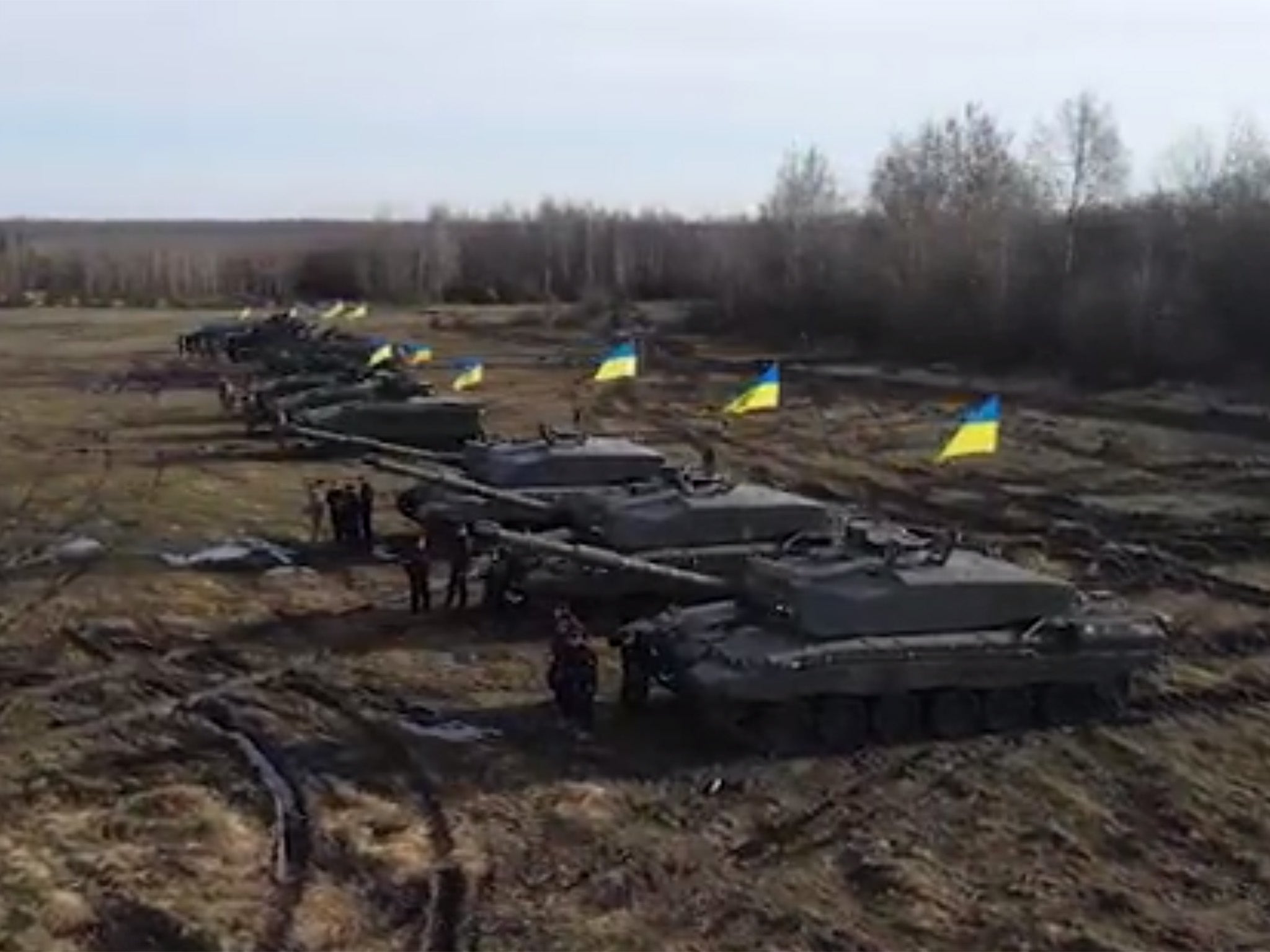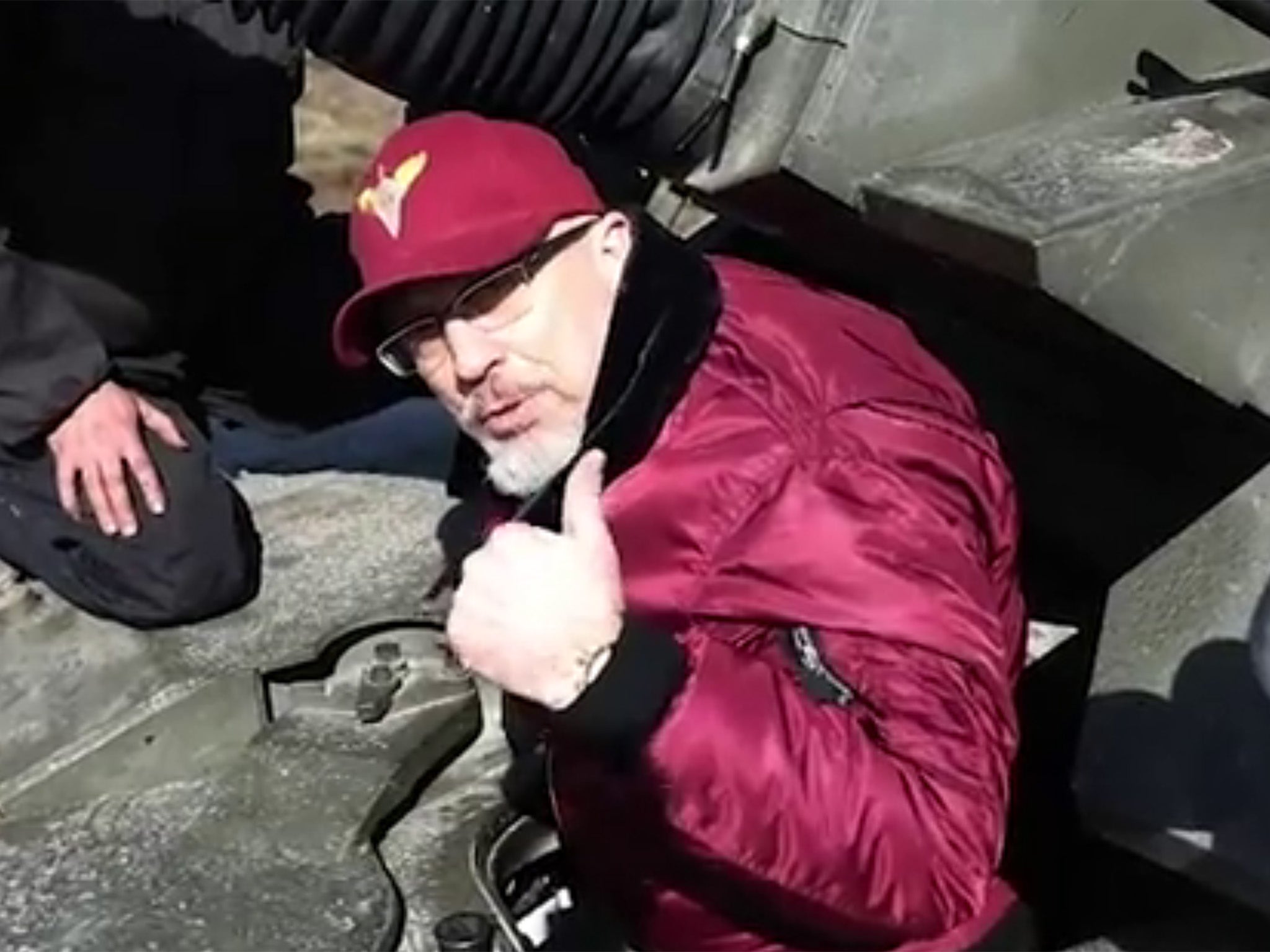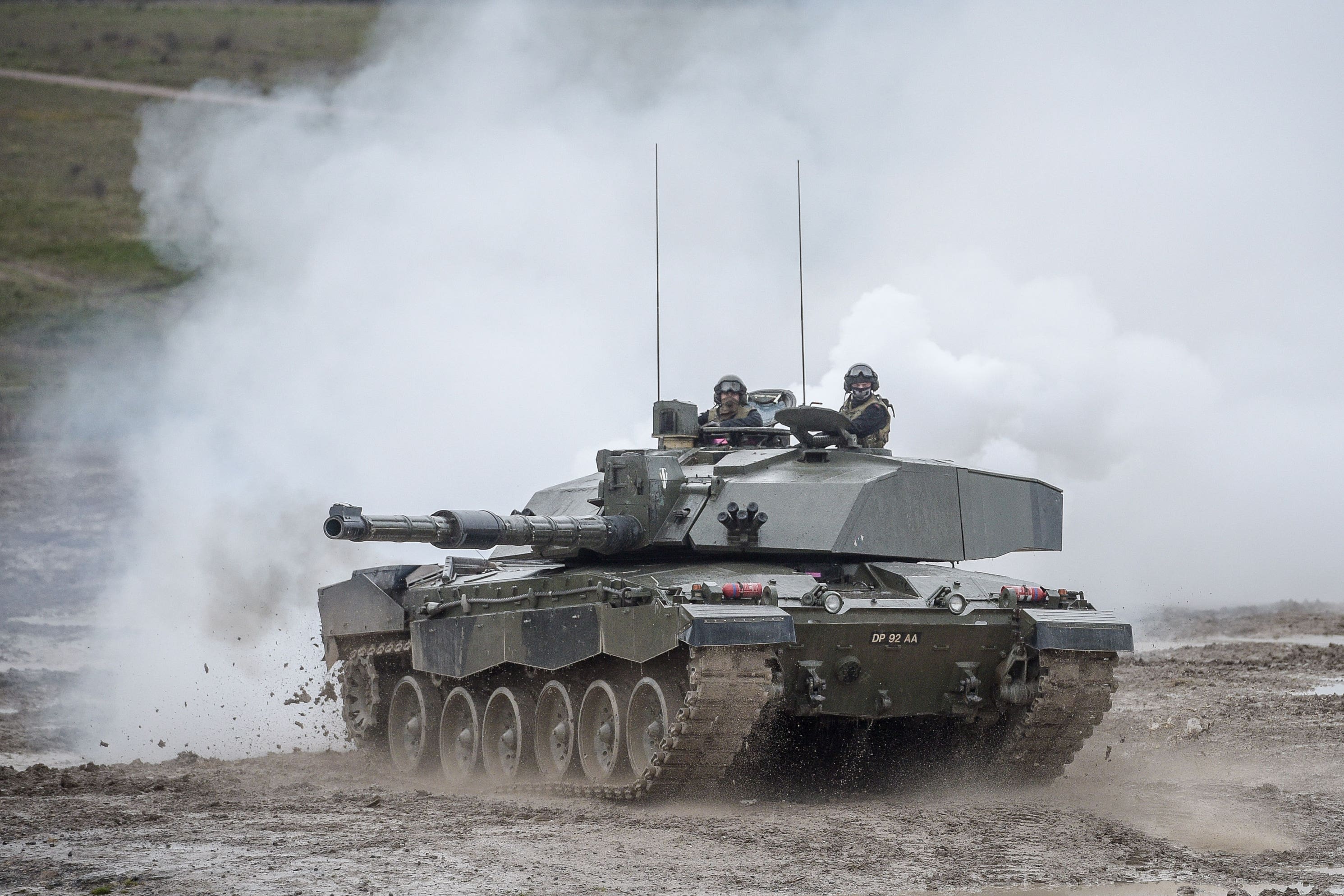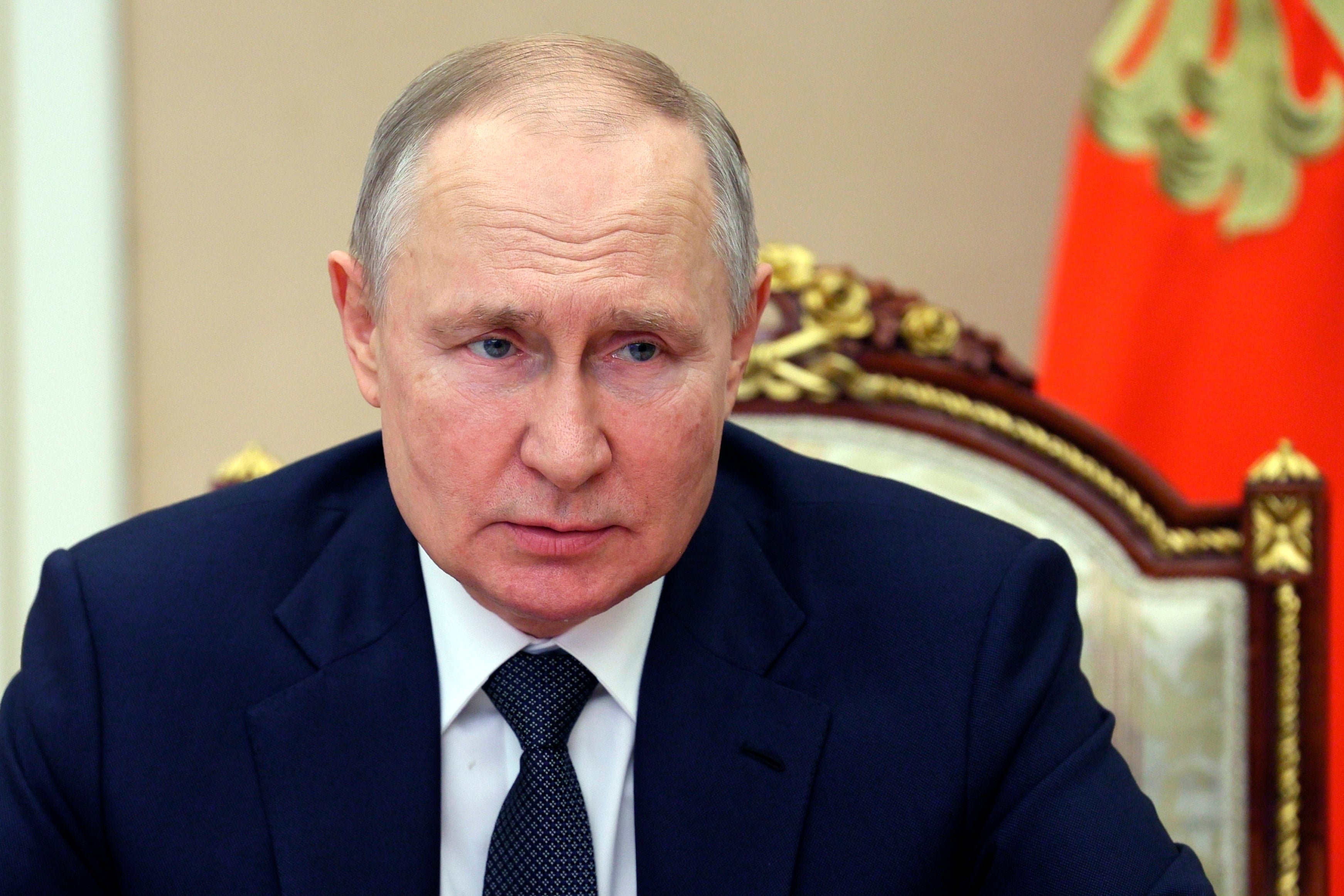British Challenger 2 tanks arrive in Ukraine to join fight against Russia
UK promised 14 tanks to Ukraine, which helped persuade other Western nations to supply their own
Your support helps us to tell the story
From reproductive rights to climate change to Big Tech, The Independent is on the ground when the story is developing. Whether it's investigating the financials of Elon Musk's pro-Trump PAC or producing our latest documentary, 'The A Word', which shines a light on the American women fighting for reproductive rights, we know how important it is to parse out the facts from the messaging.
At such a critical moment in US history, we need reporters on the ground. Your donation allows us to keep sending journalists to speak to both sides of the story.
The Independent is trusted by Americans across the entire political spectrum. And unlike many other quality news outlets, we choose not to lock Americans out of our reporting and analysis with paywalls. We believe quality journalism should be available to everyone, paid for by those who can afford it.
Your support makes all the difference.British-supplied Challenger 2 main battle tanks have arrived in Ukraine and will soon begin combat missions, the country’s defence minister has said.
The UK promised 14 of the vehicles to Ukraine, a move which helped persuade other Western nations to supply their own tanks to aid the fight against the Russian invasion.
Oleksii Reznikov said the "fantastic" tanks had "recently" arrived in Ukraine, posting a video on social media showing him taking one of the Challenger 2s "for a spin".

He thanked prime minister Rishi Sunak and defence secretary Ben Wallace, adding: "These fantastic machines will soon begin their combat missions."
Ukrainian tank crews trained in the UK on the machines, which are being donated by the government along with ammunition and spares.
Mr Wallace said the crews "return to their homeland better equipped but to no less danger".
Russia has condemned the UK's move and predicted the tanks would "burn" on the battlefields of Ukraine.

Russian president Vladimir Putin has also reacted to the UK's decision to supply depleted uranium armour-piercing rounds for the tanks by announcing plans to station tactical nuclear weapons in neighbouring Belarus.
Developed by Vickers Defence Systems, now BAE Systems, the 8.3-metre-long Challenger 2 tanks have since been deployed in Bosnia, Kosovo and Iraq, and are designed to destroy other tanks. The British army claims it has “never experienced a loss at the hands of the enemy”.
It is the heaviest of all three Western tanks on offer, and although capable of firing Nato rounds, uses a different kind of ammunition for its main rifled gun – high-explosive squash-head ammo – and is slightly slower, sporting a 1200-horsepower engine, 300 short of its contemporaries.

Its 120mm rifled gun is said to have an effective firing range of at least 3km using armour-piercing rounds. The Challenger also claims the furthest tank-on-tank kill shot in military history, destroying an Iraqi vehicle at a range of 4,700 metres during the Gulf War in 1991.
The tank prioritises firepower and protection – provided by “world-class” Dorchester 2 armour – over speed, making it slightly slower than its counterparts, but this is offset by its “accuracy and lethality”, according to the British army.

The Independent previously revealed that Boris Johnson wanted to get rid of Britain’s Challenger 2s in 2021 when he was prime minister, believing they had outlived their usefulness.
But Mr Wallace claimed in January to be reviewing “whether the lessons of Ukraine suggest that we need a larger tank fleet” alongside a planned upgrade to Challenger 3.
In January, after months of pleas and international pressure, Germany and the US agreed to supply Ukraine with tanks – a decision hailed by a top presidential aide to Volodymyr Zelensky as “a real punching fist of democracy” against Russia’s invasion.
While unlikely to turn the tide of the war in their current numbers, the roughly three battalions’ worth marked a gear change in Nato’s support for Kyiv.
The tanks themselves – including the Leopard 2, M1 Abrams and Challenger 2 designs – are generally viewed as more potent than most of the Soviet and Russian-made vehicles which, to the surprise of those who believed tanks to be practically defunct, have so far played a central role in Europe’s largest land war in decades.




Join our commenting forum
Join thought-provoking conversations, follow other Independent readers and see their replies
Comments